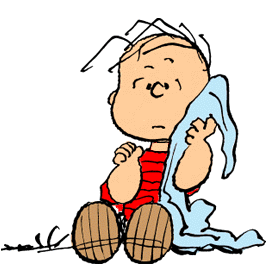So Michael Chabon writes a coming of age story surrounding comics, I click links on Wikipedia, end up seeing the "Graphic Novel" is becoming considered the newest form of "literature", real art, become intrigued, see "Cerebus" cited, see "Cerebus" is some 6,000 page narrative the author calls the longest in human history, see it contains political and religious satire, sounds good, sounds grand, buy volume one, here's what I think:
The first of ump-teen Cerebus collections is noted for its crude art and silly humor. But more than once do I see foreshadowing of what is promised to me by so many admirers and critics: the dark comedy and satire! It's first realized when a group called the "Pigts" take Cerebus the Aardvark in, believing he is a god. "Tarim, Ashtoth, these were gods...They brought war, pain, they killed without reason or apology...", Cerebus ponders before the statue of the idol so closely resembling himself. Then he tears it apart, and on his adventures go.
Cerebus's adventures lead him all over the map. As he goes, we find him switching allegiances on a dime (once protecting the bureaucratic leader Lord Julius (famed for his likeness to Carlo Marx), next trying to take over his city of Palnu with a group of barbarians), running into comic book spoofs I had to research to understand (Red Sonja and Elric from the Conan series, The Cockroach spoofing Batman and Captain America this time around), all the while searching for gold and ale.
What's the point? Fun, I suppose. Apparently the long-term narrative had not yet been decided on, so Sims had no intention of this thing being a 300 issue massive work yet. Still, it's hard not to laugh at the ridiculous chants of The Cockroach as Bruce Wayne, moaning day and night and killing without cause for his parents, or the snappy one-liners of Lord Julius the bureaucrat (ex, after the torturing, something GWB should know a thing or two about: "Isn't that just like a prisoner...? You invest a good hour and a half breaking them on the rack. And they up and die on you."). Then my favorite had to be Cerebus's view on chivalry from a small school in the wetlands..."Of course he's had many adventures...Why he's probably saved simply thousands of women from death...Haven't you?", to this Cerebus replies, "Actually NO. Cerebus did use one for a shield once, though." This, of course, brings up the accusations of Sims as a misogynist, but I think, perhaps, it points at the knowing of smart men, that too many women just want to be saved by men regardless of their feminism. And that is not good, it's terribly unfortunate, especially if you want to be saved by Cerebus! Anyhow, it's funny, the comics becoming more witty, more inventive as the issues go by (especially in the psychedelic "Mind Game", where Cerebus is in a parallel consciousness manipulating religious fanatics, a wonderful comment on how two opposing, fundamentalist factions can be so easily manipulated by their beliefs, like a Sunni/Shiite conflict). And knowing Lord Julius as well as the Cockroach are mainstays, but that the story develops into a more cohesive plot -- more fun and additional commentary to come!
Good thing I just retrieved "High Society" from the post office yesterday. I'm reading about three books at once right now, but I think I can find time for the little aardvark amongst the amazing tales of The Lost Boys and the occasional Portable Atheist reading. Won't be an issue.
Notes: I just read, while looking for my footer images, about where Sim REALLY started to be called a "misogynist" -- issue 186, something they referred to as READS. Sounds fascinating, especially where Sim begins to argue against the current Marxist-feminist society. I'm sure my views are caught in the middle somewhere, but I respect this man's art now, so I'll stay tuned for where he will take it. Also, publications continue to talk about the first issues as just some funny animal book, but I feel like that died much earlier than they give it credit for, especially when we meet Lord Julius and talk about bureaucracy, aristocracy, etc. Should dovetail seamlessly with a novel called "High Society", now shouldn't it?
